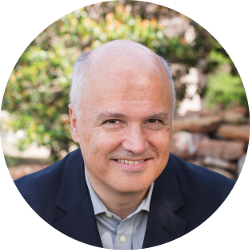Why don’t the characters in the books I write pray to me?
I’ve been struggling lately with one of my key characters. Through the course of the story she experiences something of a transformation. As with any good story, these changes are driven by a sequence of events and how she chooses to respond to those events.
My struggle is not so much about the events, her choices, or her transformation, but about coherency. At different points in the story my character is, in small but significant ways, a different person. Keeping straight in my head exactly where she is in her progression as the story unfolds (and as I race back and forth through the timeline to fix things) has been something of a challenge for my small brain.
So as I dug back into the story this morning, I started with a prayer. “God, help me with this.”
(It’s a little embarrassing. He keeps his story moving along with over six billion active characters. I’m having a hard time keeping up with ten, one of whom is dead. I guess that’s why he’s God and I’m not.)
But that made me wonder. Why don’t my characters pray to me?
“Dear heavenly author, we could use some help here. We’re in quite a pickle, and we don’t see how we’re gonna get out. We know you gave us free will and all, and part of the reason we’re in this fix is because we chose to do a few things that weren’t quite what you had planned. But it just feels like you’ve written us into this spot, and we don’t think it’s very funny. If you have a plan, let’s hear it. If you don’t have a plan, or if your plan is just to sit back and see how badly we can mess this up, let me remind you that (a) tragic endings don’t sell books, and (b) you failed to give us the omniscience and omnipotence necessary to bring this thing to a satisfying conclusion.”
Have you ever prayed a prayer like that?
Steven James, in his book Story Trumps Structure, says “Events reveal traits. Stories develop characters.” If characters aren’t being transformed, you don’t really have a story. And events are the tools that the author uses to reveal and shape that character. The chisel that chips away the stone.
Are you in a pickle? Not sure how you’re going to get out?
Remember that the story, his story, is not about the events. It’s about you, and about how you are transformed by those events.
And whether that transformation is good or bad is not about the event. It’s not even about the author. It’s about how you choose to respond. Your exercise of the free will he gave you.
Remember that tragic endings don’t sell books. God isn’t glorified if you end tragically. Rather, his plan is that “in the coming ages he might show the incomparable riches of his grace, expressed in his kindness to us in Christ Jesus.” (Ephesians 2:7, NIV)
If the story of your life feels like a tragedy, remember that it isn’t ended yet. Every event is an opportunity to be transformed.
If the story of your life ends tragically, it’s because you took his pen.
Also remember that he didn’t give you the omniscience or omnipotence necessary to fix everything. Since he didn’t give you that authority, you also don’t have that responsibility. He is the author. Do your part. Trust him to write the rest of the story.
Pray to the author. Know he has a plan. And his story is not a tragedy.
